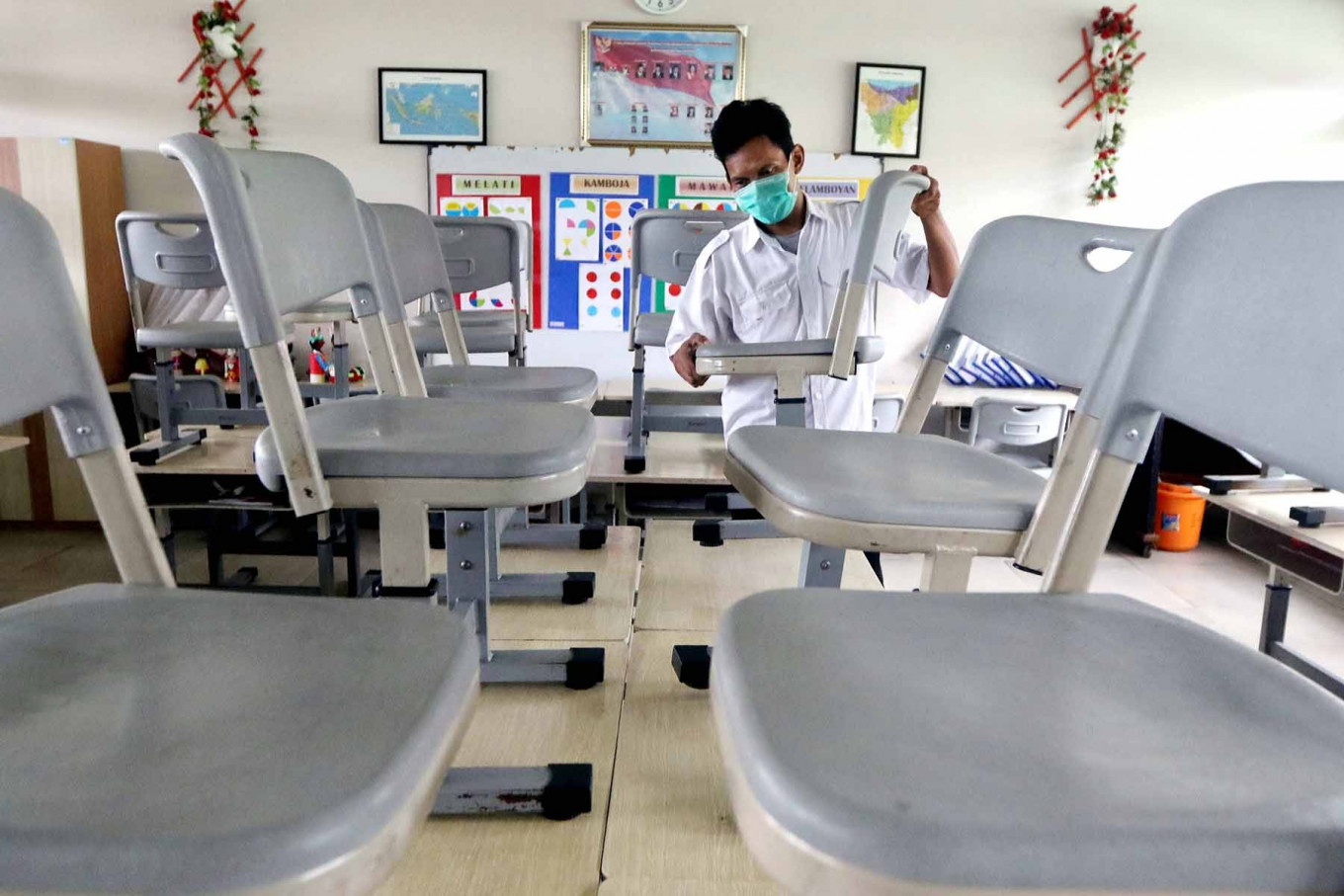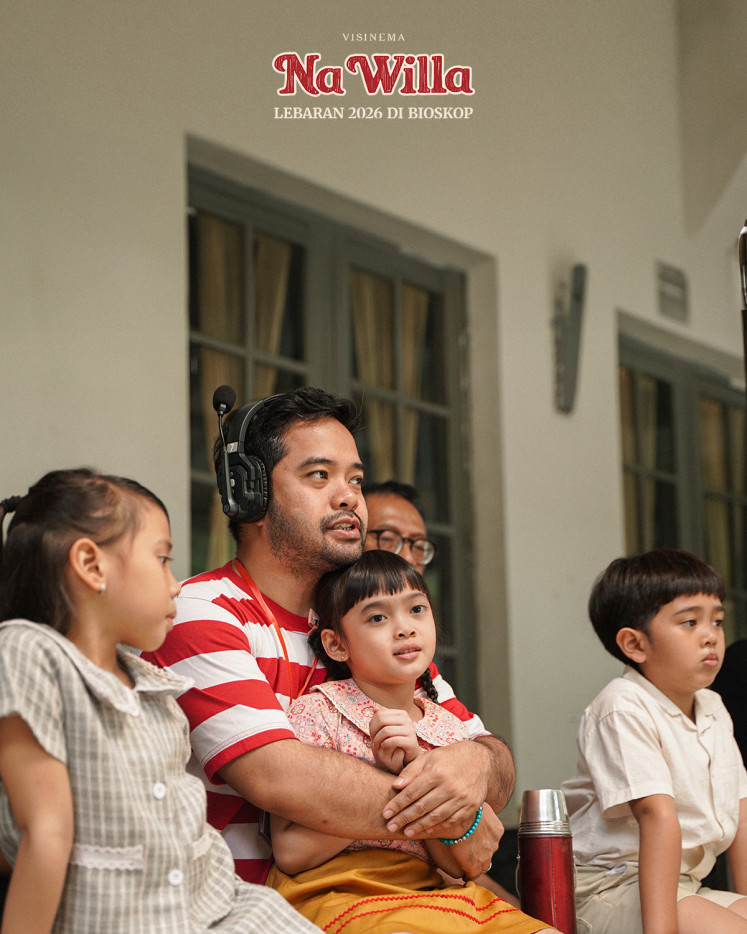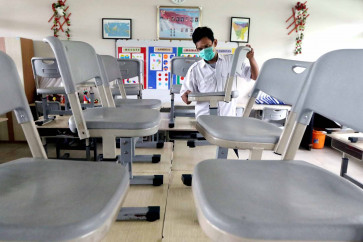Popular Reads
Top Results
Can't find what you're looking for?
View all search resultsPopular Reads
Top Results
Can't find what you're looking for?
View all search resultsSchools prep for 'back to normal'. But are we ready?
More than a year since the government imposed an online learning policy, it is pushing for the resumption of offline schooling for kindergartens and early childhood education. But are all stakeholders – schools, teachers, parents and students – ready for this?
Change text size
Gift Premium Articles
to Anyone
 A custodian arranges desks and chairs on June 22, 2020 at SD Bendungan Hilir 05 Pagi elementary school in Central Jakarta. While many schools are anticipating a return to in-class learning, many parents remain concerned about the health and safety of their children. (JP/Dhoni Setiawan) (JP/Dhoni Setiawan)
A custodian arranges desks and chairs on June 22, 2020 at SD Bendungan Hilir 05 Pagi elementary school in Central Jakarta. While many schools are anticipating a return to in-class learning, many parents remain concerned about the health and safety of their children. (JP/Dhoni Setiawan) (JP/Dhoni Setiawan)
“We’ve prepared everything,” said Maria Yasinta, a teacher at Mardi Wiyata Catholic Kindergarten in Malang, East Java. “Most of our kindergarten parents want their kids [back at] school. Are they worried? Of course. But we hope our new and improved health protocols will reassure them.”
The school has left no stone unturned in their quest to provide a safe learning environment for their students, with teachers and parents banding together in an independent COVID-19 task force to oversee the preparations. The school’s capacity will be halved. Student arrival and departure times will be spaced out with a 30-minute window to disinfect the grounds. And soon, the kindergarten plans to trial limited in-person learning.
After more than a year of struggling with online learning, Yasinta is more than ready for a change back to normal, and she is far from alone.
Indonesian schools are expecting a gradual return to normalcy after then-Education and Culture Minister Nadiem Makarim stated in March that schools must provide blended learning that combines remote and classroom methods for students and parents as early as July 2021.
For the country’s uneven education system, the minister’s statement came as a great relief.
Soaring COVID-19 cases and austere localized measures meant that most schools had to stop in-class learning and switch to virtual classes in March 2020. That August, the education ministry said the measure had affected at least 68 million students nationwide, and that almost 10 percent were children in kindergarten and early childhood education (PAUD).
To say it hasn’t been smooth sailing would be a gross understatement. Never minding the technical issues, the practical challenges involved teachers redesigning class lessons for online delivery and instruction, parents stressed and overworked from managing at-home classes, as well as students experiencing boredom, inactivity and screen fatigue. Added to this were slashed wages and job cuts among teachers at all levels and statuses.


















